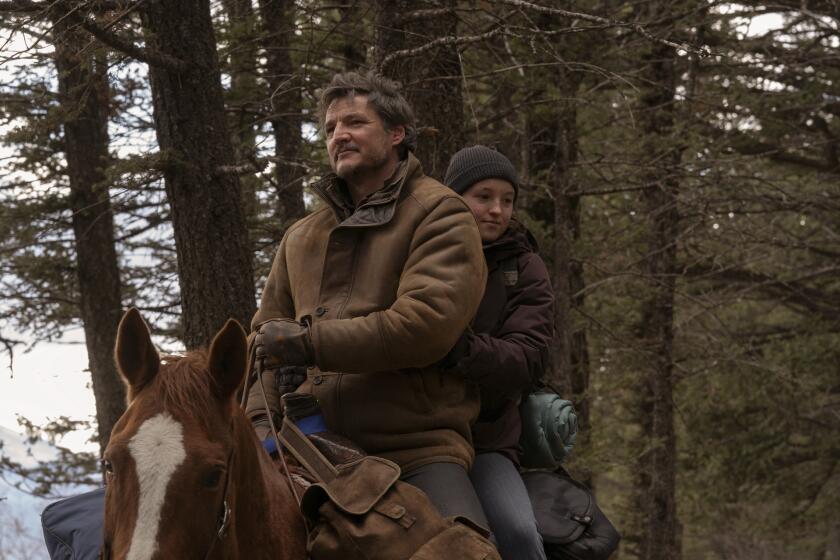Movie review: ‘New Year’s Eve’
- Share via
Scrambling to accommodate its Big Gulp of an ensemble cast, for which disaster movie maven Irwin Allen would’ve killed, “New Year’s Eve” does for its holiday what last year’s “Valentine’s Day” did for Valentine’s Day. If this one’s a hit, as was “Valentine’s Day” ($200 million worldwide), surely we can expect “Presidents Day.” With nice cameos for actual ex-presidents.
As with “Valentine’s Day,” the template for director Garry Marshall and screenwriter Katherine Fugate is “Love, American Style” except some of the plotlines interconnect. Eight narratives duke it out in “New Year’s Eve,” which is set in New York City on Dec. 31. Hilary Swank plays the overseer of the big ball drop (Mayor Michael Bloomberg, looking a lot like Joel Grey, makes an appearance), but the ball has mechanical problems, which means a cameo for Marshall’s eternal good-luck charm, Hector Elizondo. Elizondo has a way of elevating lame banter, and thanks to “New Year’s Eve” he has his way.
Elsewhere in the great big city, a wondrous toy, just made for a girl and boy: Ashton Kutcher and Lea Michele are stuck in an elevator together. Robert De Niro lays dying in a hospital, hoping to see the ball drop from the rooftop one last time. Halle Berry is his nurse. Michelle Pfeiffer is the mousy record company executive who cuts loose with the help of hopped-up delivery boy-man Zac Efron. Katherine Heigl (playing a Type-A control freak) and Jon Bon Jovi discuss past heartache and future prospects at the swank New Year’s Eve party hosted by Cherry Jones, whose son, Josh Duhamel, is stuck in Connecticut and trying to get back. Sarah Jessica Parker is the mother of Abigail Breslin, the latter desperate to go off on her own with her pals.
And there’s so much more! Each beat and every clunky reaction shot encourage the actors to push it, like Jessica Biel in the birthing plotline. Marshall knows a certain kind of comedy, but his technique has a way of pitting performers squarely against their own material.
Near the end of “New Year’s Eve” Berry lands a moment of genuine emotion, sharing a brief scene (they’re all brief; as Shakespeare once said, tedious, but brief) with her beloved. It’s the sole instance in a proudly superficial product that lands, quietly, at a human midpoint between synthetic happiness and manufactured pathos.
Also, De Niro gets off a nice under-the-breath zinger in the end-credits outtakes.
More to Read
The biggest entertainment stories
Get our big stories about Hollywood, film, television, music, arts, culture and more right in your inbox as soon as they publish.
You may occasionally receive promotional content from the Los Angeles Times.










